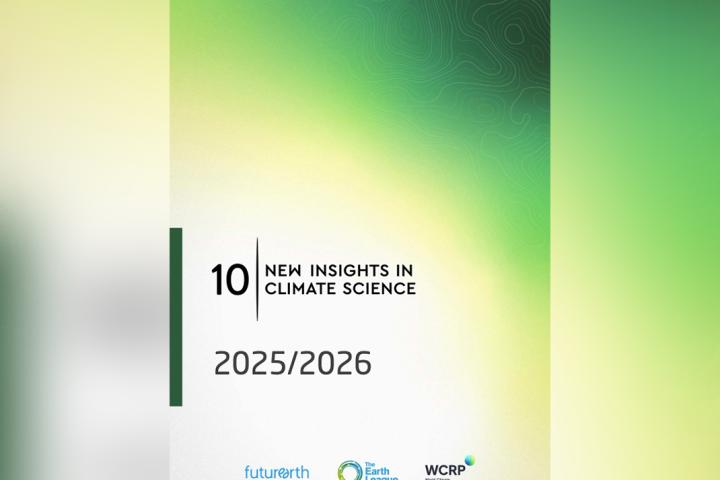Professor Thiam serves on the editorial board for '10 New Insights in Climate Science' report

The University of Cape Town's Water and Production Economics (WPE) research unit is proud to share that our Director, Professor Djiby Thiam, served on the editorial board for the recently completed 10 New Insights in Climate Science 2025/2026 report. This prestigious annual publication brings together global experts to highlight critical advancements and perspectives in climate research.
The report will be presented on 10 November 2025 at COP30, the UN Climate Change Conference, taking place in Belém, Brazil.
Read the official editorial board statement below.
START //
‘10 New Insights’ report signals escalating climate threats and pathways for action
As leaders head to the UN climate summit in Brazil, a new report delivers a stark assessment of the planet’s climate and an urgent call to accelerate global action.
The 10 New Insights in Climate Science highlights a worrying acceleration in global warming, growing threats to health and livelihoods, and persistent challenges facing carbon markets while outlining science-based strategies to close the gap between pledges and implementation.
Produced by Future Earth, The Earth League, and the World Climate Research Programme, the annual report synthesises the latest peer-reviewed findings from across disciplines to inform international climate policy. This year’s edition draws on contributions from more than 70 researchers in 20+ countries and input from over 150 experts worldwide.
It opens with stark findings from recent climate indicators: 2024 was confirmed as the warmest year on record, with global temperatures 1.55°C above pre-industrial levels. Ocean heat content and sea level rise reached record highs, while Antarctic sea ice hit its second-lowest extent ever recorded. Despite mounting evidence, global greenhouse gas emissions continued to climb through last year.
Several insights underscore a dangerous acceleration in Earth system changes. New analyses illustrate an elevated Earth energy imbalance, surging ocean heat uptake, and a sharp drop in the global land carbon sink — trends that suggest the climate system may be warming faster than previously understood. Compounding these risks, the report highlights how biodiversity loss itself can worsen climate change, weakening natural systems’ ability to absorb carbon and stabilise the climate.
Other insights focus on the human impacts of climate change. Researchers document an accelerating decline in groundwater, threatening water security in multiple regions, alongside evidence of dengue fever expanding into new territories as global temperatures rise. Meanwhile, heat-induced productivity losses are reducing global income and straining economies. These impacts disproportionately affect workers in vulnerable sectors and regions.
The report warns that while adaptation efforts must rapidly scale up, there are limits to adaptation in the face of unchecked warming. Without deep emissions cuts, health systems and economies will face increasing pressure and potential systemic breakdowns.
The final set of insights examines mitigation strategies. The report finds that carbon dioxide removal remains far below required levels, even as it becomes essential for managing temperature overshoot. At the same time, voluntary carbon markets continue to suffer from integrity and transparency issues, risking further delays in direct decarbonisation.
Encouragingly, decades of climate policy experimentation have revealed what works. The report points to strong evidence that well-designed, context-specific policy mixes – especially those combining carbon pricing with complementary regulations and incentives – deliver deeper and more durable emissions reductions.
As negotiators in Belém work to turn commitments into action, the 10 New Insights in Climate Science 2025/2026 report offers concise, evidence-based recommendations. It underscores that effective, equitable, and science-informed policy remains the most powerful tool to safeguard both people and the planet.
// END
